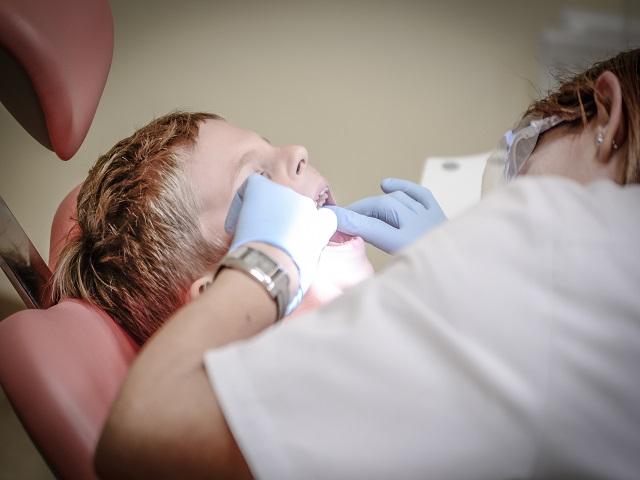
Seal or Varnish? Preventing tooth decay in children
Research published in May 2017 found that applying fluoride varnish to children’s teeth is just as effective as alternative expensive treatments.
The Seal or Varnish study was led by Professor Ivor Chestnutt from Cardiff University School of Dentistry, in collaboration with Cardiff and Vale University Health Board Community Dental Service. Professor Chestnutt and his team set out to discover whether decay on first adult molars can be prevented by two different treatments: fissure sealants (seal) or fluoride varnish (varnish).
More than 800 children were treated as part of the trial and given either ‘seal’ or ‘varnish’. The children, from disadvantaged communities across Cardiff and Vale and Cwm Taf university health board areas, attended a mobile dental clinic which visited schools every six months for three years.
Professor Ivor Chestnutt said: “Our research has shown that the fluoride varnish – which is simple to apply – does prevent tooth decay just as well as a more difficult and expensive treatment. Over the three years there was a cost saving of £68.13 per child in the varnish group.
“The study provides invaluable evidence for National Health Service dental services in the UK and has implications for dental prevention around the world.”
Novel aspects of this trial and the contribution to revised trial regulations
Fluoride Varnish is a prescription only medicine, which meant that full regulations that apply to a Controlled Trial of an Investigational Medicinal Product (CTIMP) applied. This led to interesting discussions with the Medicines and Healthcare products Regulatory Agency (MHRA) over the application of CTIMP protocols in a mobile dental clinic at a time when the MHRA were producing their Risk-adapted Approaches to the Management of Clinical Trials of Investigational Medicinal Products. Professor Chestnutt believes that discussions over the resulting risk-adapted approach would make running a similar trial again less taxing.
The role of Health and Care Research Wales
Professor Ivor Chestnutt commented: “This study shows that we have the infrastructure and support in Wales to run what has been one of the largest dental clinical trials conducted in recent years.
“The support of Health and Care Research Wales and its predecessor bodies have been crucial in us being able to compete for this type of work and to deliver a world leading study in the area of pragmatic clinical trials in Wales. The research infrastructure in the form of the Trials Unit and the financial support for the excess treatment and service support costs, which are considerable in a study such as this, are crucial.
“We also benefitted from input from Health and Care Research Wales research nurses who helped us chase up responses to parental questionnaires that were important in informing the health economic analysis that was an integral part of the study.”
The setting for the trial was the Welsh Oral Health Improvement Programme – Designed to Smile. The study was funded by the National Institute for Health Research (NIHR) and coordinated by the Centre for Trials Research at Cardiff University.
First published: @ResearchWales Issue 2, June 2017